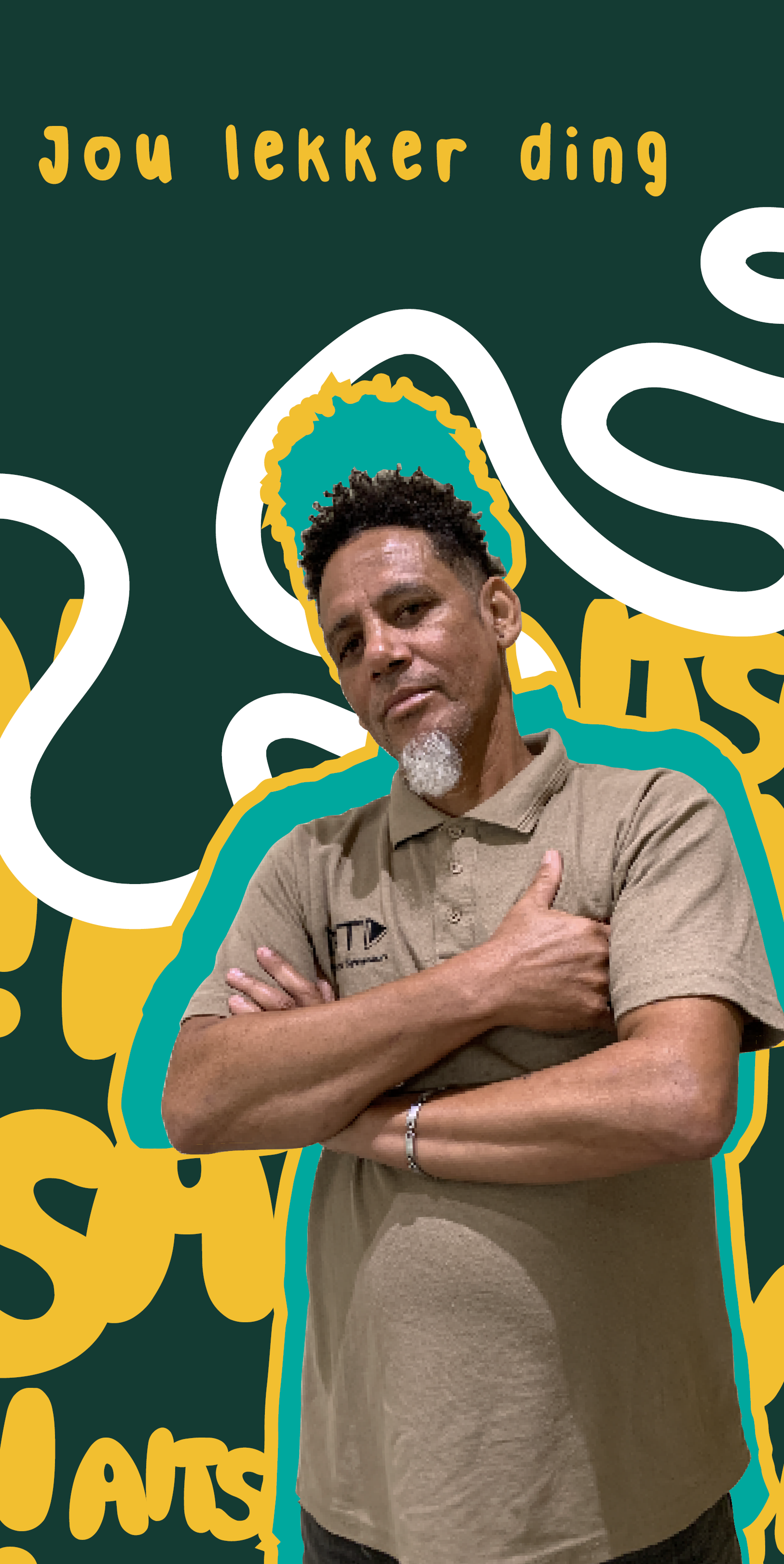
Earlier this year, Unesco brought together two of Africa’s remaining hunter-gatherer communities to test the CyberTracker application, which combines Indigenous knowledge with digital technology. Indigenous languages, cultures and knowledge are celebrated globally on 9 August, the International Day of the World’s Indigenous Peoples.
“We have a connection with the Hadzabe community because they are hunter-gatherers just like us”, Namibian |Ui David said. In May, David, a tracker from the Ju/’hoansi San community in Namibia, took part in a unique exchange organised by Unesco’s Local and Indigenous Knowledge Systems Programme (LINKS). Together with members of Tanzania’s Hadzabe community, he participated in training on CyberTracker, an icon-based application that allows users to record animal tracks, signs and ecological data, blending Indigenous knowledge with digital technology. The Ju/’hoansi San and Hadzabe communities share a deep bond. Both have developed extensive knowledge of wildlife, tracks and signs, which they have used to gather food and avoid predators for millennia. They speak languages that share ancient click sounds – possibly pointing to a connection dating back tens of thousands of years.
For four days, members of these communities gathered in Tanzania to exchange stories, techniques and insights about reading the land and preserving cultural identity, using the CyberTracker tool. This application, created in South Africa, is designed for people with little or no formal education, but who are rich in oral knowledge, to gather geo-referenced data about nature. “The CyberTracker is an application mostly made for people who cannot read and write. It has been developed in an easier way so that the elders or the young – anyone – can make use of it. It is like data collecting. You go in the bush; you collect all the animal tracks and data on your device. And then you share the information with different people,” Dam Debe, a Namibian trainer, explained. “I’m happy to meet [the Hadzabe community] and also learn from them about what they’re doing, their lives,” he added.
Data collected by expert trackers can be valuable in protecting endangered species, monitoring environmental changes, analysing trends, and preventing poaching and wildlife trafficking.
Transmitting Indigenous knowledge to the next generation - CyberTracker training is not only about technology. It is also about restoring confidence in Indigenous identity. In some settlements, the Hadza language is at risk of being lost, as younger generations shift to more dominant languages. The training encouraged elders to share their language, traditions and values with youth while documenting these interactions digitally.
“It is because we have preserved our culture that we are identified as the Hadzabe community. We want to transmit our culture and lifestyle to the next generation,” said Jackline Ossman, a member of the Hadzabe community.
This session was the first of three trainings, with the next set to take place in late 2025 and 2026. After completing training, trackers will be tested on their skills and awarded international certificates of competence. In southern Africa, this has helped Ju/’hoansi San people get better employment and wages.
The examination process is based on Indigenous knowledge, applied by Indigenous peoples, and can be conducted by the Hadzabe themselves once they master the methodology. If successful, the model can be scaled to other Indigenous communities. “We have to make sure the next generation inherits our traditions through the elders. Our children should not forget who they are: their land, language and traditions,” Ruben Mathayo, a Hadzabe community member, said.
Advocating for Indigenous knowledge - Indigenous knowledge – like that collected through the CyberTracker tool – is an essential resource to draw on in addressing emerging challenges, including climate disruption and biodiversity collapse. Supporting exchanges between Indigenous knowledge-holders, scientists and policymakers is the aim of Unesco’s intersectoral LINKS programme, created in 2002. Its efforts are gaining new ground through the International Decade of Indigenous Languages (2022-2032). For Unesco, Indigenous Peoples are important actors of change, guardians of natural resources and carriers of unique world views, knowledge and skills – which are celebrated globally on the International Day of the World’s Indigenous Peoples on 9 August.
“We have a connection with the Hadzabe community because they are hunter-gatherers just like us”, Namibian |Ui David said. In May, David, a tracker from the Ju/’hoansi San community in Namibia, took part in a unique exchange organised by Unesco’s Local and Indigenous Knowledge Systems Programme (LINKS). Together with members of Tanzania’s Hadzabe community, he participated in training on CyberTracker, an icon-based application that allows users to record animal tracks, signs and ecological data, blending Indigenous knowledge with digital technology. The Ju/’hoansi San and Hadzabe communities share a deep bond. Both have developed extensive knowledge of wildlife, tracks and signs, which they have used to gather food and avoid predators for millennia. They speak languages that share ancient click sounds – possibly pointing to a connection dating back tens of thousands of years.
For four days, members of these communities gathered in Tanzania to exchange stories, techniques and insights about reading the land and preserving cultural identity, using the CyberTracker tool. This application, created in South Africa, is designed for people with little or no formal education, but who are rich in oral knowledge, to gather geo-referenced data about nature. “The CyberTracker is an application mostly made for people who cannot read and write. It has been developed in an easier way so that the elders or the young – anyone – can make use of it. It is like data collecting. You go in the bush; you collect all the animal tracks and data on your device. And then you share the information with different people,” Dam Debe, a Namibian trainer, explained. “I’m happy to meet [the Hadzabe community] and also learn from them about what they’re doing, their lives,” he added.
Data collected by expert trackers can be valuable in protecting endangered species, monitoring environmental changes, analysing trends, and preventing poaching and wildlife trafficking.
Transmitting Indigenous knowledge to the next generation - CyberTracker training is not only about technology. It is also about restoring confidence in Indigenous identity. In some settlements, the Hadza language is at risk of being lost, as younger generations shift to more dominant languages. The training encouraged elders to share their language, traditions and values with youth while documenting these interactions digitally.
“It is because we have preserved our culture that we are identified as the Hadzabe community. We want to transmit our culture and lifestyle to the next generation,” said Jackline Ossman, a member of the Hadzabe community.
This session was the first of three trainings, with the next set to take place in late 2025 and 2026. After completing training, trackers will be tested on their skills and awarded international certificates of competence. In southern Africa, this has helped Ju/’hoansi San people get better employment and wages.
The examination process is based on Indigenous knowledge, applied by Indigenous peoples, and can be conducted by the Hadzabe themselves once they master the methodology. If successful, the model can be scaled to other Indigenous communities. “We have to make sure the next generation inherits our traditions through the elders. Our children should not forget who they are: their land, language and traditions,” Ruben Mathayo, a Hadzabe community member, said.
Advocating for Indigenous knowledge - Indigenous knowledge – like that collected through the CyberTracker tool – is an essential resource to draw on in addressing emerging challenges, including climate disruption and biodiversity collapse. Supporting exchanges between Indigenous knowledge-holders, scientists and policymakers is the aim of Unesco’s intersectoral LINKS programme, created in 2002. Its efforts are gaining new ground through the International Decade of Indigenous Languages (2022-2032). For Unesco, Indigenous Peoples are important actors of change, guardians of natural resources and carriers of unique world views, knowledge and skills – which are celebrated globally on the International Day of the World’s Indigenous Peoples on 9 August.
















